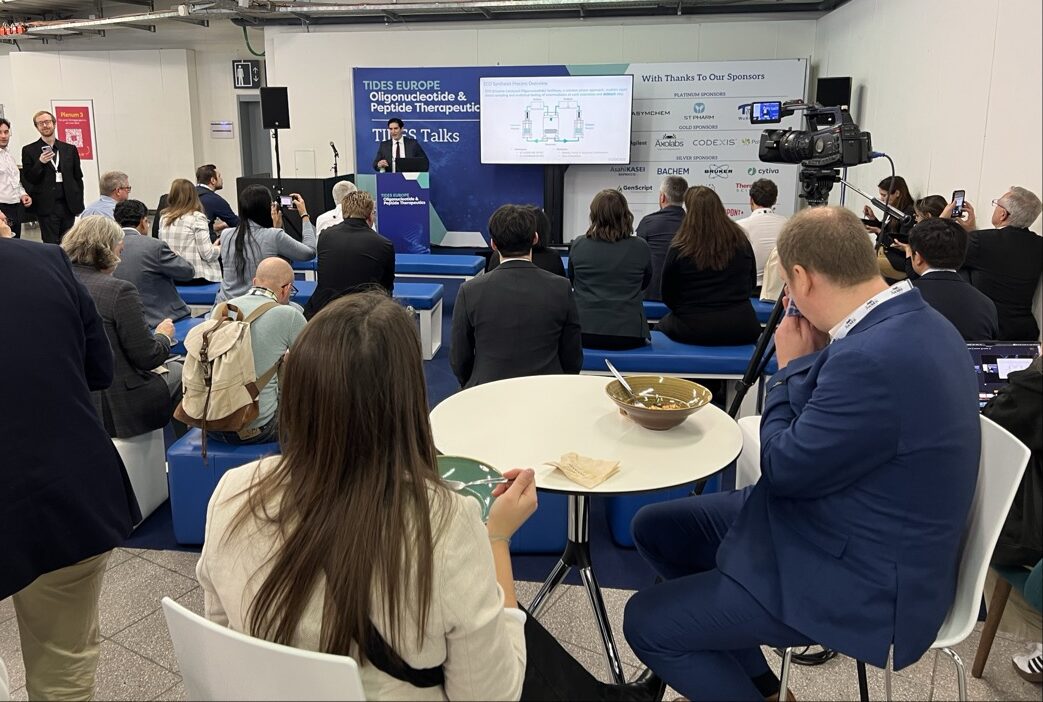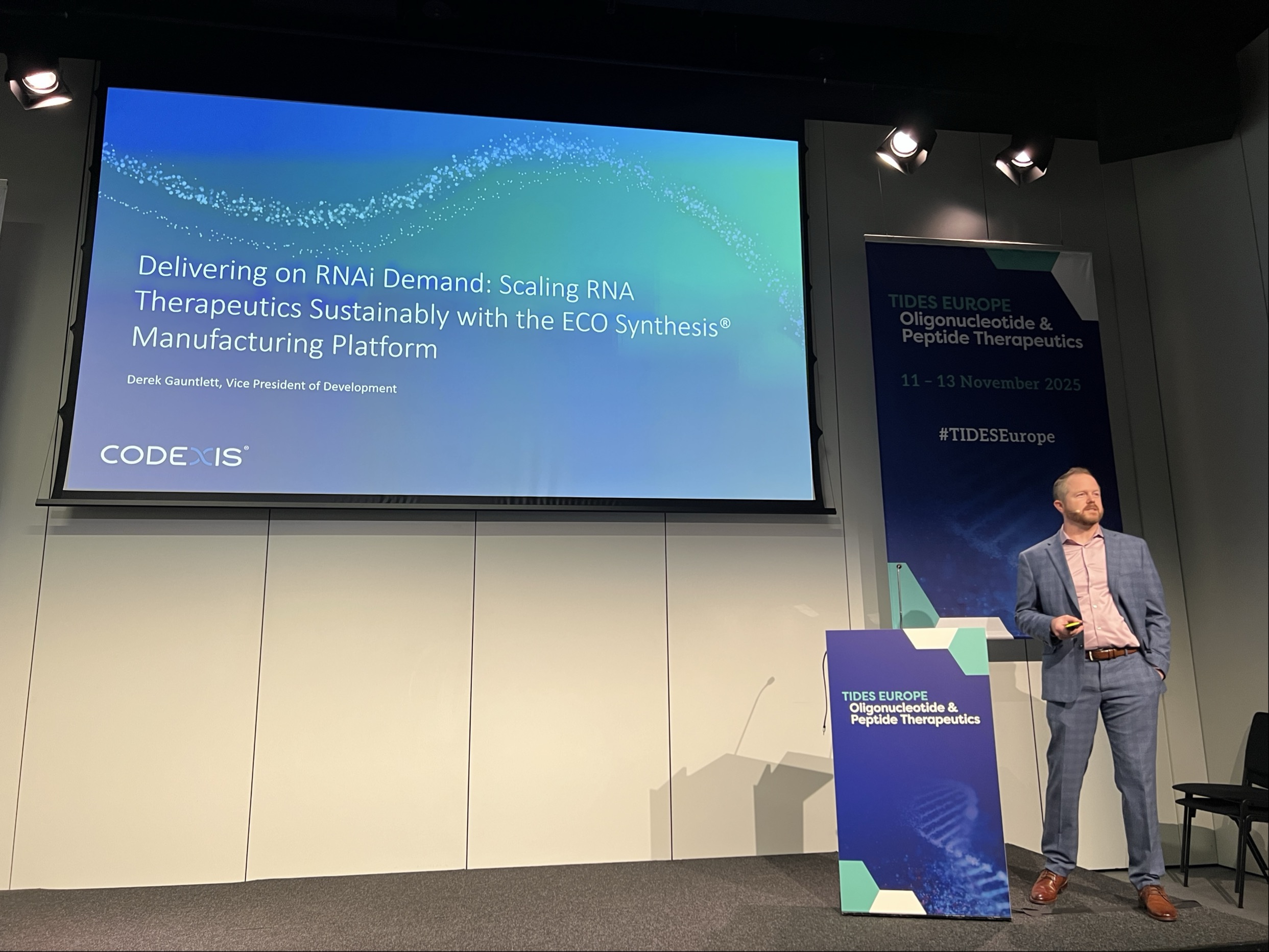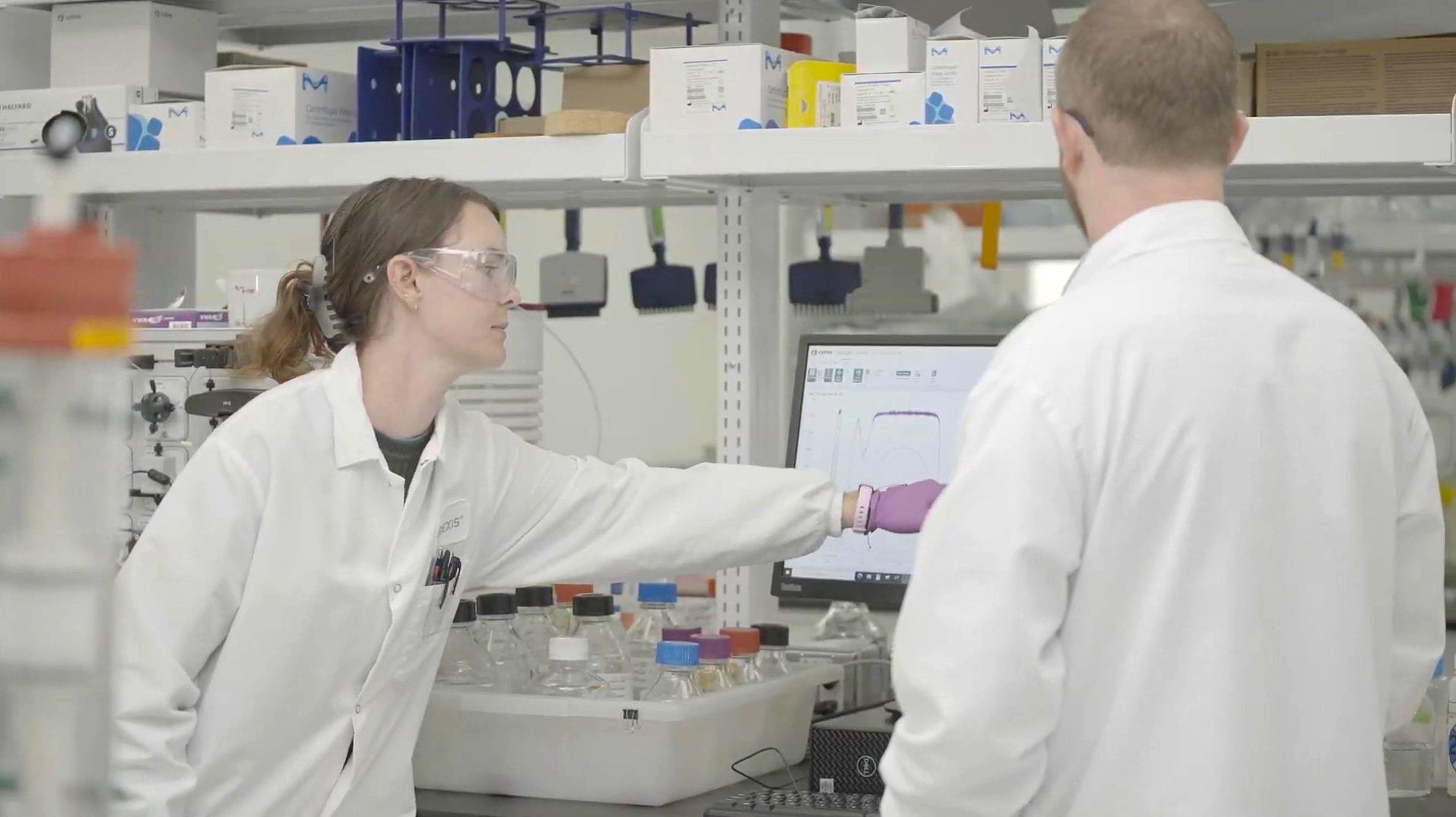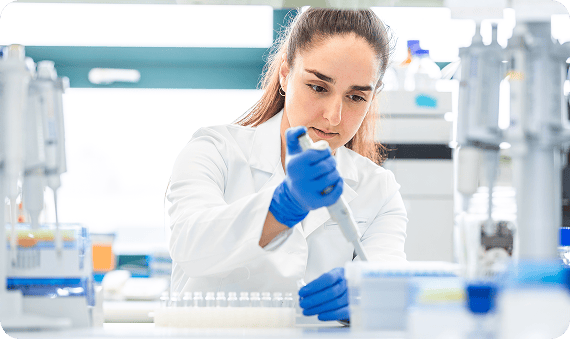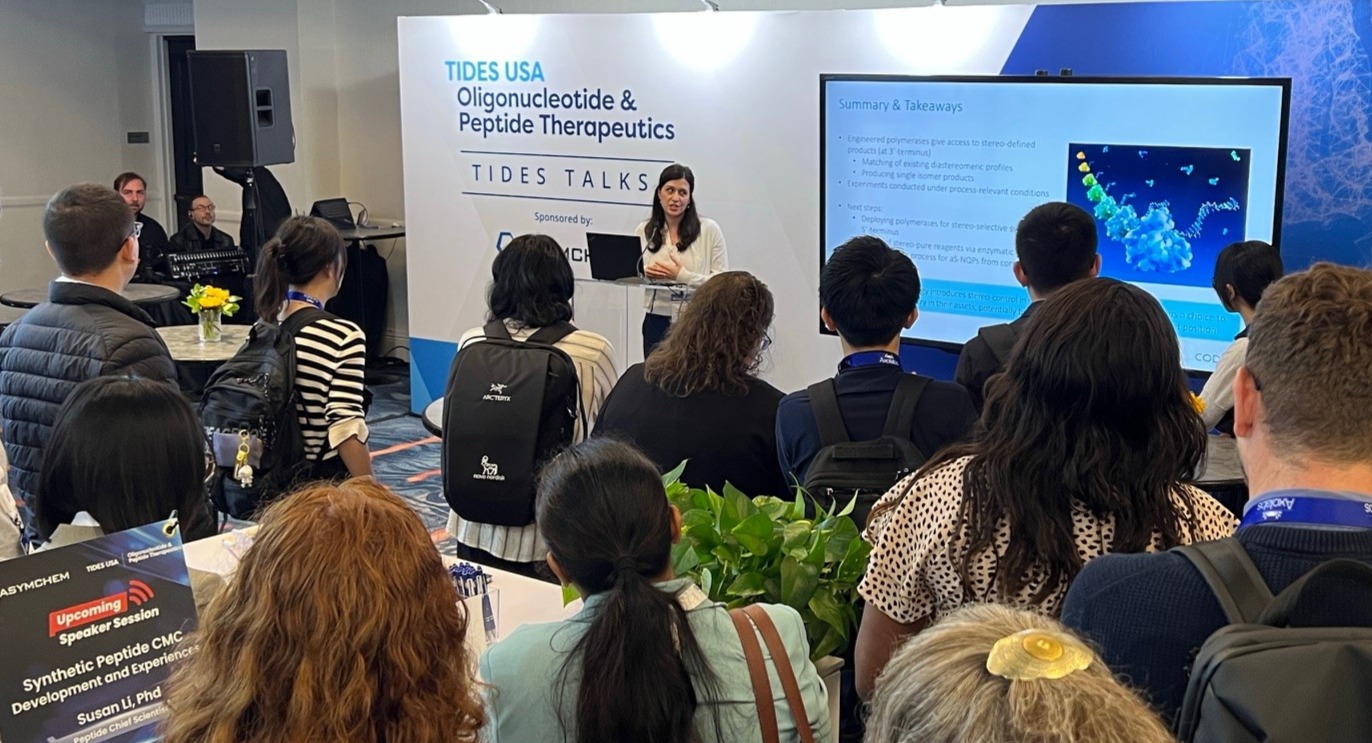Home / Transformational Technologies / CodeEvolver Technology Platform
Our CodeEvolver Enzyme Engineering Platform
Codexis’ proprietary platform for rapid, real-world enzyme optimization at scale.
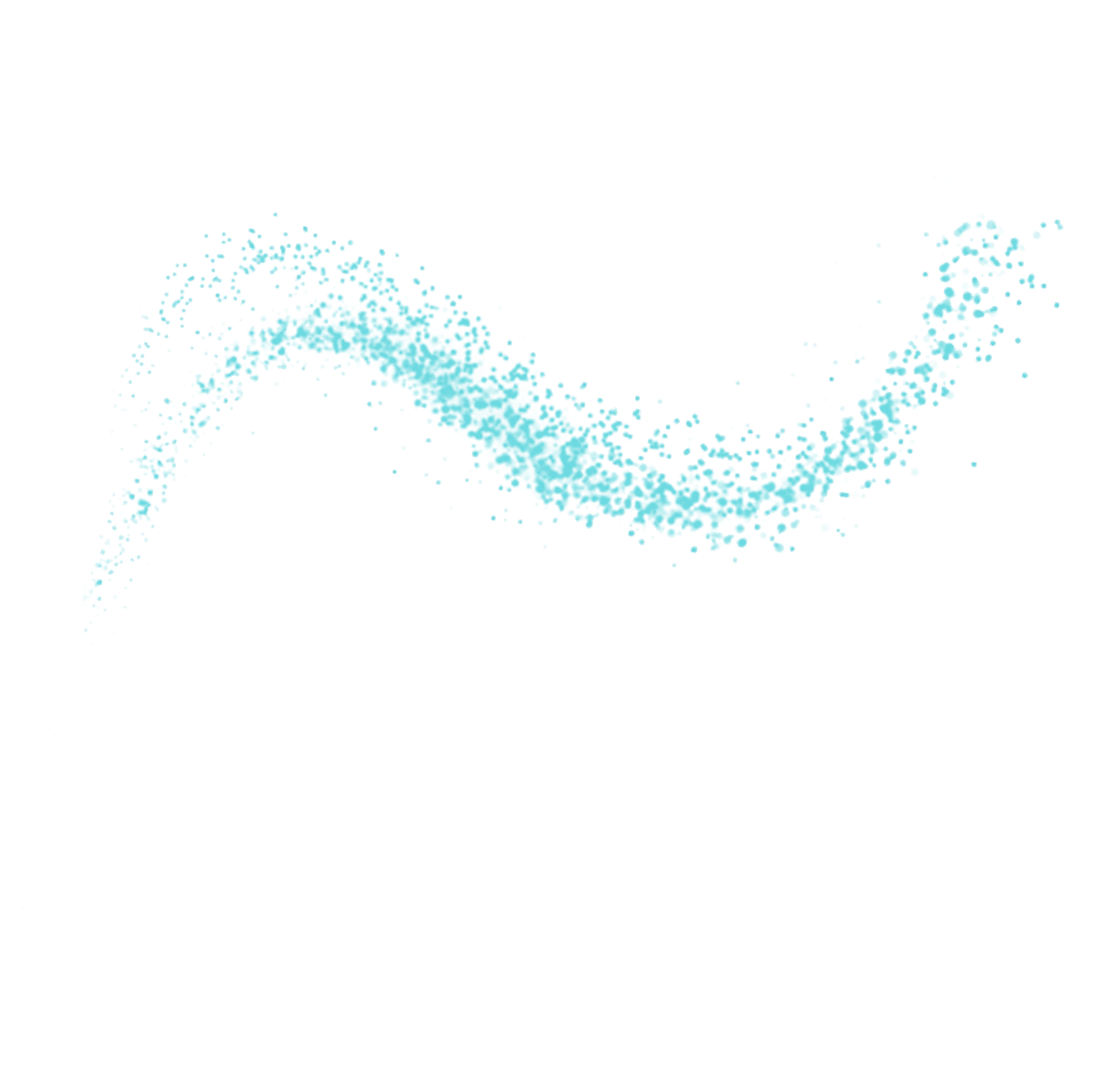
Purpose-Built for Performance and Scale
CodeEvolver® Technology Platform is Codexis’ proprietary platform for enzyme engineering. Continuously evolved over 20+ years, it integrates machine learning, bioinformatics, and lab workflows to design enzymes with optimized function, performance, and manufacturability.
Unlike generic AI tools, CodeEvolver was built for real-world impact — enabling scalable, sustainable solutions across pharma, RNA therapeutics, and diagnostics.
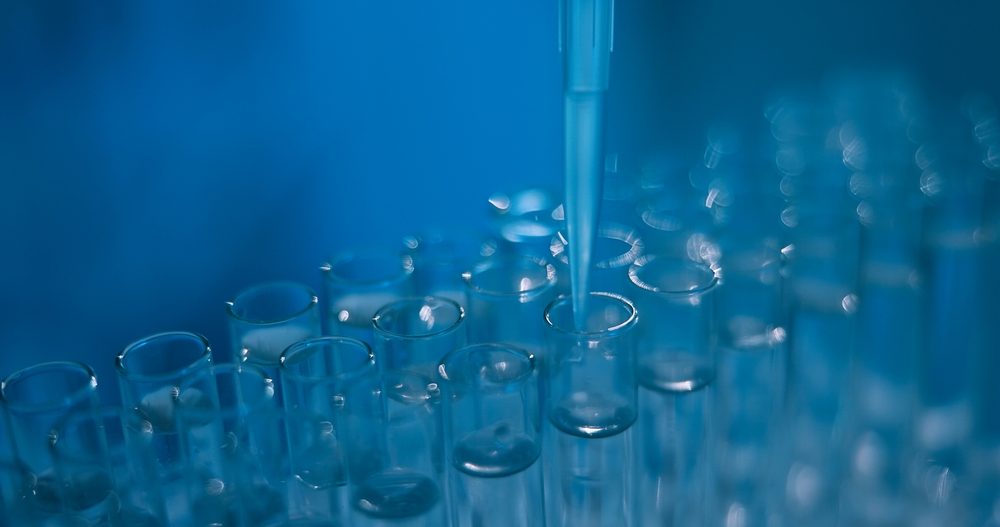
One Platform. Fully Integrated Process.
Why CodeEvolver Delivers Results
Outcomes that matter, from development to deployment.
Accelerate Development Timelines
Enzyme cycles in as little as one week.
Design for Manufacturability
Built with scale-up and robustness in mind.
Apply Across Modalities
From API chemistry to RNA to diagnostics.
Partnered with Industry Leaders
Proven value with Merck, GlaxoSmithKline, and Novartis.
Unlock Therapeutic Possibilities at Scale

RNA manufacturing
Evolve beyond traditional chemistry with a modern and efficient approach that slots seamlessly into your existing process. Our enzyme-enabled RNA manufacturing platform delivers superior quality, higher yield, better manufacturability and faster results — through a greener solution. A future you can believe in, sooner than you thought possible.

Pharma biocatalysis
Transform complex, resource-intensive processes into precise, efficient and sustainable breakthroughs. Our proprietary enzymes — powered by CodeEvolver® Technology Platform — enable greener processes, faster pathways and world-class quality from grams to tonnes. Unlock new possibilities with pharma biocatalysisand elevate your process with sustainable chemistry designed to optimize API synthesis.
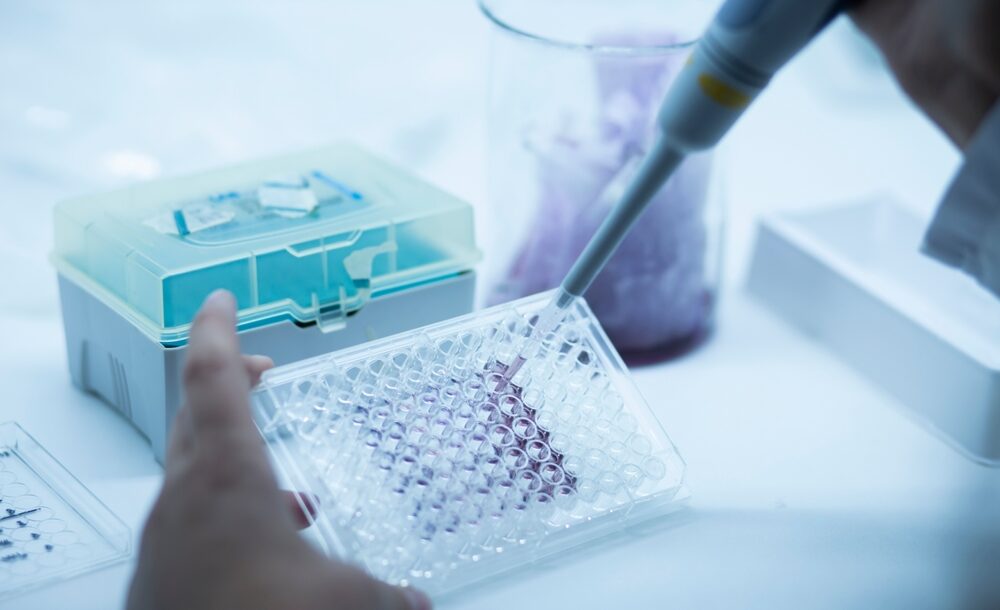
Molecular biology and diagnostic applications
Codexis redefines enzyme performance for molecular biology and diagnostic applications. Our CodeEvolver® platform enables tailored enzyme solutions with improved fidelity, enhanced selectivity, and increased activity, delivering faster reaction times to power your applications. As your trusted partner for enzyme evolution, we deliver precision-optimized solutions that power performance.
Explore CodeEvolver in Action
See how CodeEvolver® has transformed enzyme programs across industries.
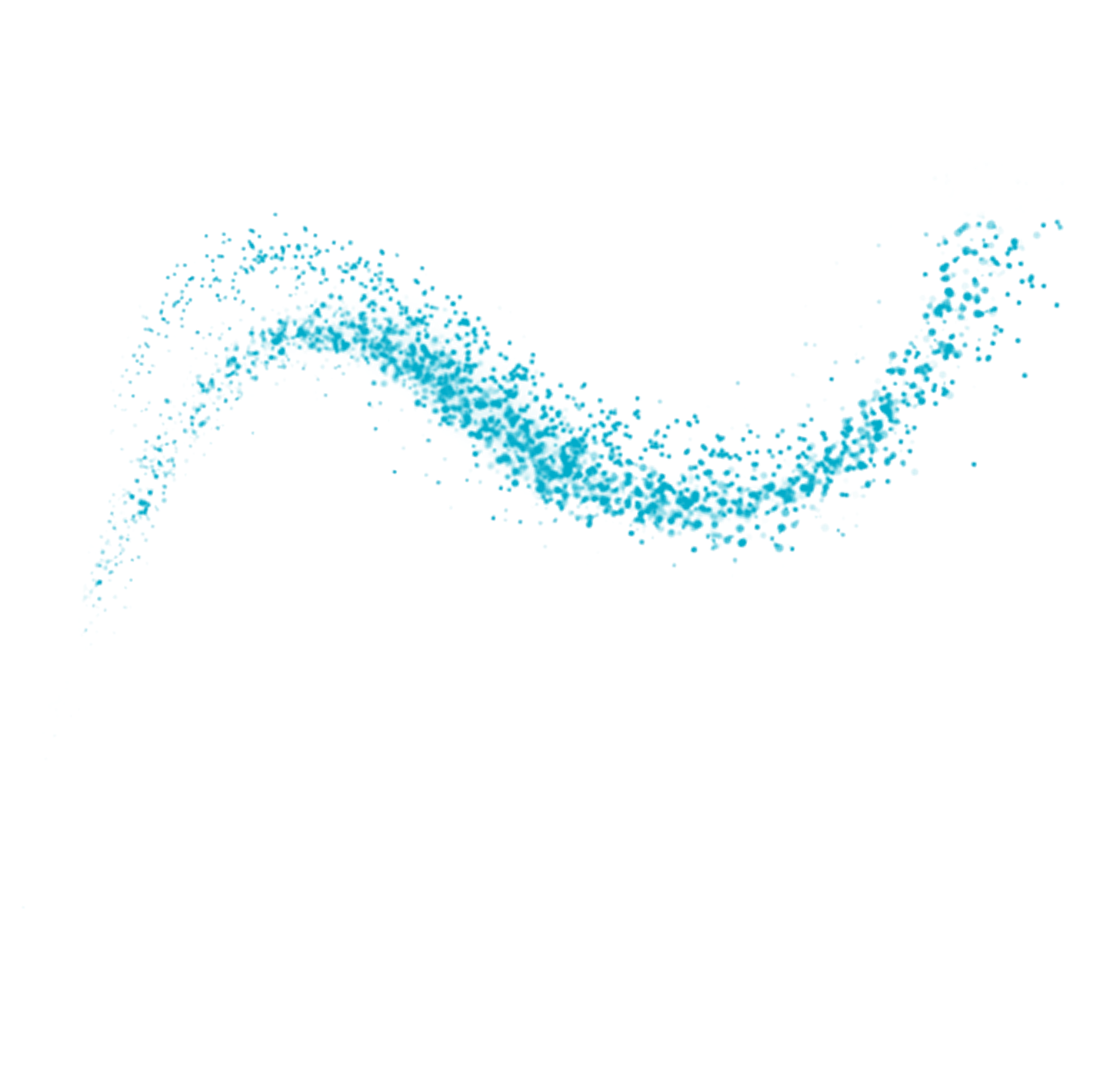





Start Your CodeEvolver Project Today
Discover how CodeEvolver® can push your biocatalysis beyond the possible. Let’s talk.

